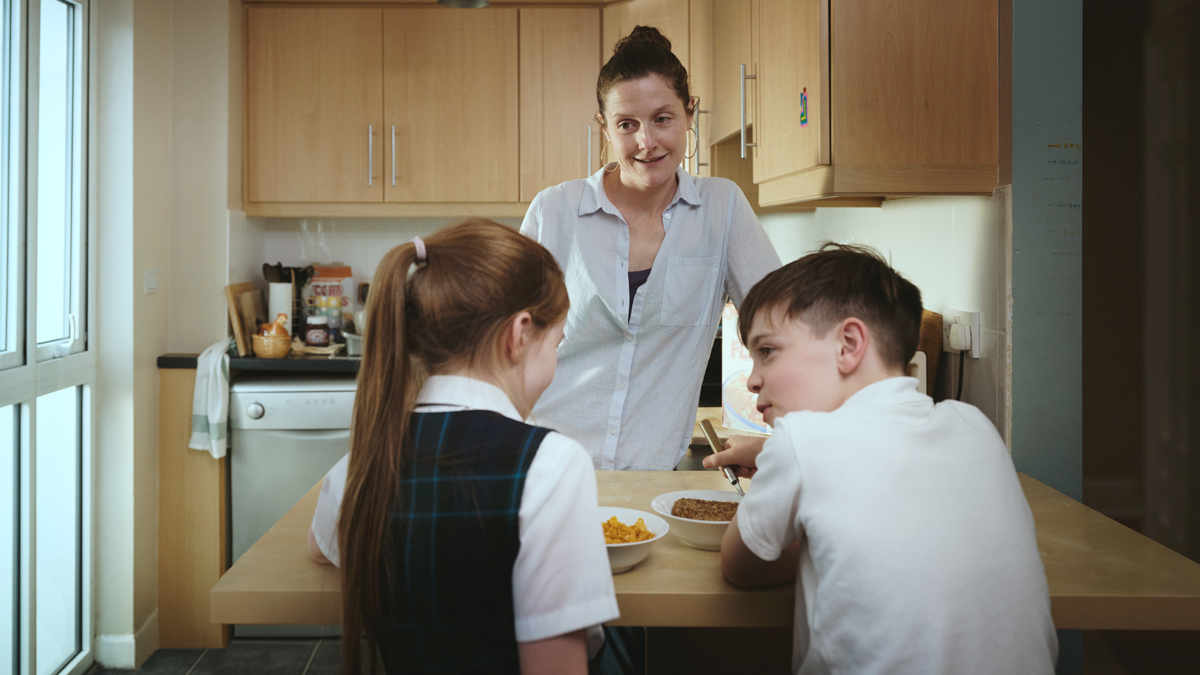Exploring the world of food

Download the report: Exploring the world of food (PDF, 2.7MB)
Parents are influenced by many factors when deciding what, where and when to eat with their children. These competing and interacting factors include psychological, social and environmental influences that parents must navigate and respond to.
This research aims to understand how families make decisions about meals and snacks that are eaten at home when a multitude of factors are at play. Given that social inequalities in dietary habits and in obesity are significant challenges for public health, the research has a focus on families from low-income groups to understand how they navigate the food environment to feed their families.
It is hoped that the findings from this research will guide future interventions, or strategies for change, in the area of family food environments and will contribute to recommendations for promoting healthy eating to families within the home environment.
The following video highlights the complex social and economic factors that make it hard for parent to provide good food for their families.
Key findings and implications:
• Parents sought to nourish their children and provide the best food possible. Parents’ choices were routinely guided by children’s preferences, perceived specific dietary requirements and perceived needs. This has implications for the design of dietary guidance and advice for families with children at different developmental stages. Specifically, parents would benefit from guidance on 5 strategies to work around children’s food phobias, such as irrational fears or dislikes of certain foods, and include more fruit and vegetables in their diets.
• Time was identified as a resource in short supply for many families with children, particularly one-parent families. This has implications for the development of resources for families, which should consider time constraints on families, as well as budget, level of skill and knowledge of food preparation.
• The availability of free school meals frees up budgets for parents on very low incomes, such that more of the family food budget may be used to buy healthier and fresh foods for meals consumed at home. This has implications for national-level policy and for the implementation of free school meals, which should be considered as means of improving the health and wellbeing of children and families across the island of Ireland.
• It should be noted that parents on very low incomes are frequently severely limited in making their food choices and can experience a sense of stigma and guilt in requiring food assistance. The implementation of free school meals as a universal policy rather than a benefit targeted at low-income or disadvantaged areas would
significantly help these families improve their diets and would help to reduce the perceived stigma associated with needing help.
• The corporate environment – especially supermarket chains – plays a particularly important role in influencing food choices, with the availability of store offers, special deals and vouchers significantly driving food buying behaviours. Other factors, such as the marketing of food products, store architecture (the layout, lighting, product placement and so on), level of food knowledge and budget available, will further influence the decisions made once parents are inside the shop. This highlights the need to provide messaging to parents on how to navigate the commercial food environment with both health and budget in mind.
• Participants made clear the value of eating together as a family, with food viewed not just as fuel for living but also as something to be shared with and among friends and family as a social event. This has implications for the framing of messages around the value of eating well and for eating together as a family, which has proven health benefits for all the family.
• The COVID-19 pandemic has had a significant effect on altering patterns of food buying, food-related practices and consumption. Positive changes in practices included an increase in families eating together. Negative impacts included an increase in food insecurity and reliance on food assistance as families experienced a drop in income due to loss of employment. These findings have implications for research, which should be carried out to investigate the wider and longer-term impacts of the COVID-19 pandemic on food and consumer behaviours, dietary practices and food insecurity.
Download the report: Exploring the world of food (PDF, 2.7MB)


